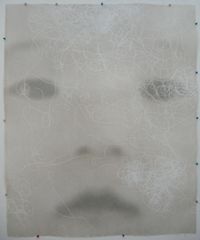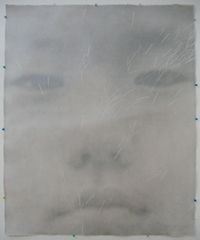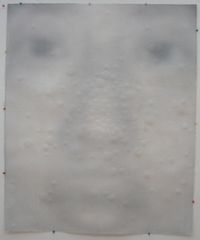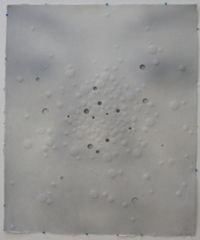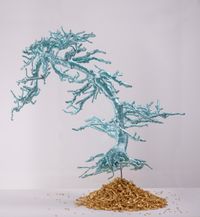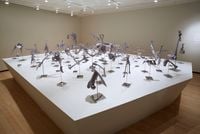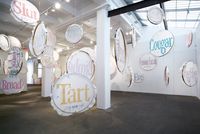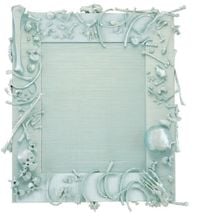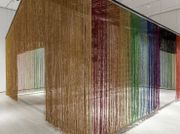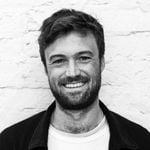Lin Tianmiao (林天苗) became one of the first Chinese women to establish herself as an internationally respected contemporary artist.
Read MoreHer initial art training came from her father, from whom she learned calligraphy and traditional painting techniques. Then, having gained a BFA from Capital Normal University in Beijing in 1984, she and her husband—the artist Wang Gongxin—migrated to New York City in 1988 where they remained until 1994. Tianmiao has subsequently stressed the key significance of her time in New York in shaping her artistic attitudes. While there, Tianmiao designed textiles and in 1989 she attended The Art Students League. On her return to Beijing, she converted her home into an open studio that became one of the key venues for so-called Apartment Art. It was at this time that Tianmiao began making work involving winding thread around everyday objects. She has related this technique to childhood memories of helping her mother make clothes for her family, and the use of thread in various ways became a core characteristic of her mature work.
Her work has expanded into sculpture, photography, video and large-scale installation. She has repeatedly used images of the naked female body and, in a series of 'Body Language' sculptures, replicas of human bones.
Among Tianmiao's core concerns are the disappearance of tradition and the dehumanising pressures of contemporary society. Despite the materials and subject matter of her work, Tianmiao has rejected the suggestion that she is a feminist artist. When talking to Ocula Magazine in 2017, she explained that 'the term "feminism" is borrowed from the West.' She added that 'using a woman's perspective is something I've worked through now.'
The exhibition Bound Unbound at Asia Society Museum in New York (7 September 2012–27 January 2013) was crucial in establishing Lin Tianmiao's international reputation, and her work is now in the permanent collections of museums across Asia, Australia and the United States. She lives and works in Beijing.
Robert Ayers | Ocula | 2017
